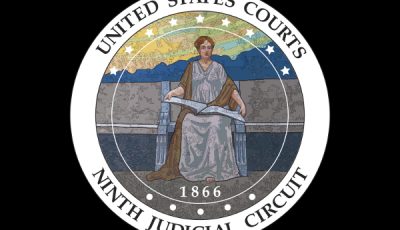Wentworth’s Conviction Upheld By Appellate Court
 PASADENA, Calif. – Back in the summer of 2015, Teofil Brank (better known as “Jarec Wentworth,” the name under which he performed in gay porn) was convicted on six counts in connection with a scheme to extort Florida billionaire Donald Burns, the former chairman of the Board of Directors of magicJack and founder of the Telco Communications Group.
PASADENA, Calif. – Back in the summer of 2015, Teofil Brank (better known as “Jarec Wentworth,” the name under which he performed in gay porn) was convicted on six counts in connection with a scheme to extort Florida billionaire Donald Burns, the former chairman of the Board of Directors of magicJack and founder of the Telco Communications Group.
Brank’s conviction was far from the end of the story, though.
At trial, one of the key pieces of evidence against Brank was a tweet he’d sent in which Brank asked “How many porn stars know a man named Don? Yes Don.”
In appealing his conviction, Brank argued the tweet (and other messages sent directly to Burns) failed to prove he’d extorted Burns, claiming the billionaire had offered to pay him to remove the tweet in exchange for a sports car and $500,000 cash, rather than Brank demanding payment from Burns.
One of Brank’s attorneys, Ethan Balogh, also argued that injury to reputation isn’t sufficient to support a charge of extortion under the Hobbs Act, which is typically used to prosecute extortion which involves violence, or the threat of violence.
“He was afraid of others joining the conversation, others retweeting it, others favoriting it, things getting out of hand,” Balogh said of Burns’ concern over the tweet at a hearing before the appellate court last summer. “But that’s not Brank threatening action. He took an act and identified what’s likely to occur, what could occur. But his activity is over, and he got paid all that money and took that car to take down a tweet. And that is lawful.”
Balogh also noted the government’s theory of criminal liability for extortion in the case was a novel one, which hadn’t previously been tested at trial.
“No court to date has validated the government’s theory in this case, that reputational harm is enough, that fear of damage to reputational harm would support a Hobbs Act prosecution,” Balogh said.
Government attorneys conceded this was an accurate statement, but also noted “there have been numerous cases, including in this circuit, where the threats were not having to do with economic injury or property.”
In upholding Brank’s conviction, the Ninth Circuit found that Brank’s argument concerning the limitations of the Hobbs Act “is not well-taken.”
“Extortion under the Hobbs Act is defined as ‘the obtaining of property from another, with his consent, induced by wrongful use of actual or threatened force, violence, or fear, or under color of official right,’ the court wrote. “That is precisely what occurred here; Brank obtained Burns’ property, inducing Burns to part with it through wrongful use of fear that Burns’ private life would be exposed.”
Citing the 1969 case United States v. Nardello, the appellate court noted the Supreme Court “held that ‘extortion,’ when left undefined in a federal criminal anti-racketeering statute… encompassed threats to injure a victim’s reputation.”
“We cannot conclude that Congress adopted a narrower definition of ‘extortion’ in the Hobbs Act,” the court wrote. “Brank’s contention that the evidence was insufficient to establish extortion under the Hobbs Act must therefore be rejected.”
The appellate court also rejected Brank’s argument the trial court erred in allowing testimony about a gun and photograph of an ammo clip at trial. The gun itself had been excluded from evidence due to a Fourth Amendment violation, but the Ninth Circuit held the testimony about the gun was “sufficiently attenuated from the Fourth Amendment violation that led to the gun’s exclusion.”
“The district court’s admission of both the testimony and the photograph was not an abuse of discretion,” the appellate court wrote.
The court also upheld the length of Brank’s sentence (70 months) finding that “on the evidence before it, the district court did not plainly err in concluding that Brank’s conduct caused separate instances of fear and harm.”
The appellate panel was not unanimous in its findings. Judge Stephen Reinhardt dissented in part, saying he strongly disagrees with “the majority disposition regarding the scope of Hobbs Act extortion.”
“The Hobbs Act was not intended to, and does not, encompass injury, or threatened injury, to reputation,” Reinhardt wrote. “Application of our ordinary tools of statutory interpretation reveals ambiguity. The definition of extortion itself is muddled – the adjective ‘threatened’ inexplicably modifies ‘fear.’ Moreover, all other violations of the Act require harm or threats of harm to person or property – indicating that the scope of harm for Hobbs Act extortion is similarly limited.”
Brank has indicated he will request a hearing on his appeal from the full Ninth Circuit court, and if that fails, take the matter all the way to the Supreme Court.
“I never give up,” Brank wrote in an email, according to CourthouseNews.com. “I’m a fighter and I will prove my innocence in the end.”













